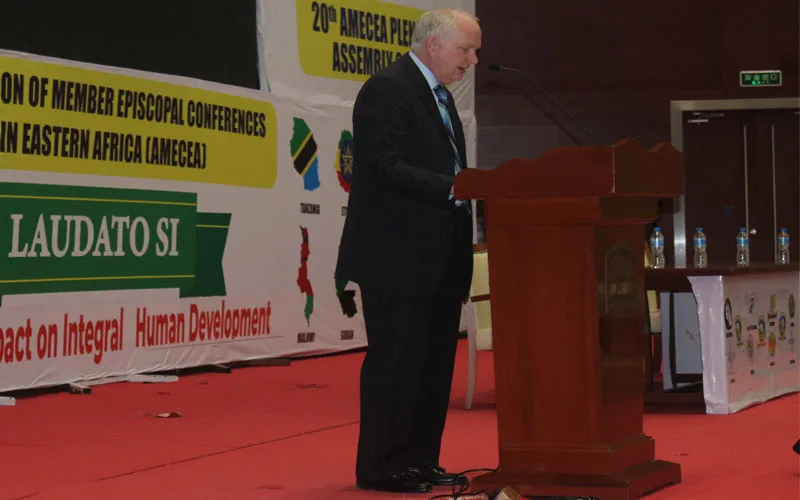To engage our international colleagues in tackling climate change, the U.S. Ambassador to Tanzania said his country is “taking a leading role during earth day events and the annual United Nations Climate change conference.”
He acknowledged the role of the developed countries in the worsening situation of climate change, saying, “Certainly, developed countries have largely contributed to the climate crisis making it more difficult for many people in developing countries to make a living.”
“With this in mind, we have placed environmental justice at the center of what we do, addressing the disproportionate health, environmental and economic impacts that are being borne primarily by communities that lack resources and opportunities,” he said.
In Tanzania and around Africa, Mr. Wright said the U.S. is “committed to providing the resources and tools needed to combat climate change in your communities without creating unnecessary burdens on your lives.”
“The United States proudly supports a range of environmental issues in Tanzania and Africa more broadly,” he said.
(Story continues below)
He explained, “We are committed to safeguarding Tanzania’s biodiversity through USAID. One of our programs USAID Preserve Natural Resources is a 30.5-million-dollar project involving not only traditional conservation partners but Tanzania’s national and local governments, the private sector and the media to protect wildlife corridors, fight poaching and build capacity for conservation efforts.”
In addition, Mr. Wright said the U.S. further supports “community-based conservation programs in wildlife management in areas that empower local Tanzanians to manage key protected ecosystems.”
“In 2021 for example over 130,000 people receive a direct increase in economic benefits through sustainable natural resource management and biodiversity conservation,” he added.
The U.S., he continued, also funds “small scale community development projects in every region of Tanzania through initiatives like the Ambassador’s Self-Help Fund. Some of the unique projects we fund significantly conserve, protect and restore Tanzania’s natural resources, wildlife and way of life.”
The U.S. diplomat hailed the “remarkable collaboration between the faith-based organizations and community leaders from all over Africa” at the ongoing AMECEA Plenary Assembly that is set to conclude on July 17 with Holy Mass.
“No matter what our faith or belief, we must all stand together to protect our earth,” he said, and added, “Know that when it comes to protecting our shared environment, the American people and the United States government stand in complete solidarity with you.”
Mr. Wright further said, “Let us continue to take care of our environment so that even the future generations can enjoy that heritage.”
Jude Atemanke is a Cameroonian journalist with a passion for Catholic Church communication. He holds a Bachelor’s Degree in Journalism and Mass Communication from the University of Buea in Cameroon. Currently, Jude serves as a journalist for ACI Africa.








